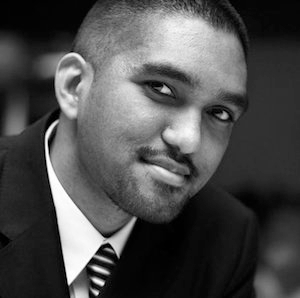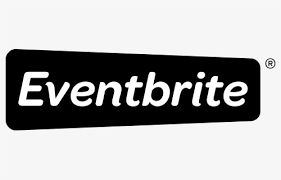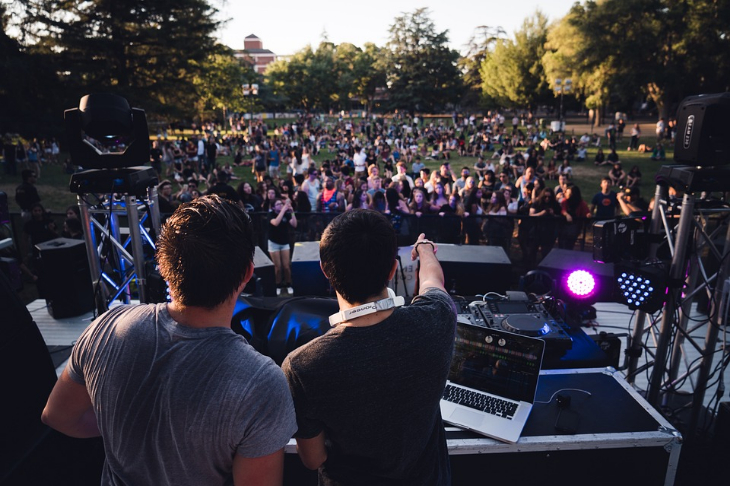What Does A Booking Agent Do
The vital role a booking agent plays in your music career

What Does a Booking Agent Do
Gateway Blog category interest
Booking agents, or Talent Agents, as most of us in the business prefer to be called, play a vital role in the careers of musicians at almost every stage of development. That said, I don't believe every touring artist, band or musician actually needs a booking agent. In fact, there are a lot of highly successful touring artists that have created really solid careers for themselves without the help of an agent. From newer developing artists who go the do-it-yourself route out of necessity because booking agents haven't yet taken notice to the superstar artists like U2, Taylor Swift, Kenny Chesney, etc who forego the services of an agent, and the payment of the commissions that booking agents command, in favor of national or worldwide promoters like Live Nation, AEG, Nederlander Presents, Emporium Presents and others who produce their full tours from conception to completion, the role of a booking agent as part of an artists overall team has been in a constant state of flux for many years.
So exactly what does a booking agent do?
Despite the fact that some artists have chosen not to utilize the services of an agent, it's important to note that a competent and qualified booking agent can, and does, play a vital role in the development of a musical artist at every stage of that artists career. The common misconception is that a good booking agent simply calls up clubs and convinces them to allow the artist that agent represents to play on a given night for a given fee. While that action is indeed part of the role of an agent, there are a lot more important factors in play. In addition to the ability to negotiate a fee for a performance, it is vitally important that an agent have strong relationships, not only with talent buyers, club bookers, festival promoters, college programming boards, and independent promoters of all kinds, but also with other agents, managers, record company AandR representatives, publicists, sponsorship organizations, corporate buyers and brand influencers. A good talent agent will have the ability to navigate the various aspects of the music industry to provide, curate and even create the best opportunities for his or her client's development, brand and, of course, bottom line. Many of the largest and most respected talent agencies, like William Morris Endeavor (WME), Creative Artists Agency (CAA), ICM Partners, United Talent Agency (UTA), Paradigm and APA have extensive rosters of not only musical artists but also actors, comedians, writers, screenwriters, directors, producers, broadway productions, family shows, athletes, voice actors, DJs, radio personalities, social media influencers, brands, brand ambassadors, and more. In many ways they are able to leverage their relationships with these to provide a path for the musical artists they work with to more opportunities and, as a result, greater revenue streams. These relationships are often a selling point for those booking agencies in attempting to sign artists they consider to be rising stars in the industry. To be clear though, these relationships are not utilized for all the artists these agencies work with, though many would like their prospective clients to think so. They are typically reserved for a select few "stars", while most musical artists are expected to "stay in their lane". These agencies typically represent literally hundreds, if not thousands, of clients across all areas of entertainment and control a large share of the market.
There are pros and cons to working with these large corporate booking agencies versus working with what are referred to in the music industry as "boutique agencies". Boutique agencies in the music business are smaller booking agencies, typically focused on procuring music industry opportunities for their artists, though some, like Dynamic Talent International and 33 And West have been known to branch into other fields like sports, film andamp; television and branding, while others, like Sound Talent Group, have gotten into the podcasting game with their podcasting network, the Sound Talent Network. One of the big pros to working with boutique agencies would be that, through a smaller artist to agent ratio, these booking agencies and agents are able to super-serve their clients through more hands-on interaction and attention to detail in ways that agents and agencies who represent hundreds of artists are not. Think of it like being in a classroom with one teacher where you are able to interact and get specific answers to questions as well as individual help with specific issues compared to being in an auditorium with hundreds of other attendees listening to a Ted talk and hoping to get an answer to a question not specifically addressed by the speaker. During 2020, at the height of the Covid-19 pandemic, many of the large booking agencies laid off a lot of agents who went on to form smaller boutique agencies like Arrival Artists, TBA, Mint Talent Group and more, and those agencies are already growing and expected to represent the future of the touring industry.
Related Article: Arrival Artists Signs Sufjan Stevens
Getting back to the question of what a booking agent does, simply put, a booking agent utilizes his or her relationships within the music industry to find, procure, curate and create opportunities that you simply could not. A booking agent's relationships with other agents, artist managers, venue talent buyers, festival promoters, influencers, record companies, publicists and even his or her other artist clients is of utmost importance in his or her effectiveness and success within the industry. In short, it is everything. A good booking agent has spent years developing these relationships through his or her day-to-day work, attending conferences like SXSW, IEBA, Music Biz, Pollstar Live! Conference, Billboard's annual conference, and more as well as what is referred to as "covering" shows, which simply means attending shows for his or her clients or potential clients (artists) not only in his or her home town, but across the country and sometimes across the globe. Without these relationships, your booking agent will be no more effective than if you represented yourself. Let me be clear here, representing yourself, at least when it comes to booking your shows, is not an uncommon path, nor should it be considered a negative. Nobody knows you better than you. There have been a large number of artists who have gone on to great success while representing themselves or by having a good manager who handled all aspects of their career (though there are restrictions to this in some states in the US).
It is these relationships that allow a good booking agent to maneuver or navigate your live music career through the potential pitfalls and hazards that await, and through the day to day obstacles that stand in the way of your success as a touring musician. A good booking agent has experience in negotiating deal points in live performance contracts which affect you and your bottom line and of which you may not even be aware. He or she is able to create revenue opportunities within the live sphere where none obviously existed previously and then squeeze those opportunities for all of their potential. A good booking agent uses his or her relationships with other agents, managers, record companies, artists and publicists to find and create supporting tour (where you get to tour with artists who have a larger following than yourself) opportunities that you and/or your management company may not be able to obtain.
Related Article: When and why does your band need a manager?
A good booking agent is, first and foremost, an integral part of your team. Regardless of how you legally structure your music business, you, as the artist, are in charge. If looking at your music career in the way most corporations are structured, you would be the CEO of your company, with your manager being either President or COO, or Chief Operating Officer; your business manager (different than your manager, see here for that discussion) would be your CFO, or Chief Financial Officer; your Record Company and/or publicist would be your CMO, or Chief Marketing Officer, and everyone else, including your agent would be likened to Vice Presidents of their various divisions with your agent being akin to your VP of touring. In short, they all work for you, not the other way around. The final decision on literally every aspect of your career should always, and I repeat always, rest with you. This brings me to something I think should be mentioned here before we go. If you are interviewing managers or agents and one of them uses the tired old line, "We do all the work so you can concentrate on just making the music", run. This is not the manager or agent you want. Oftentimes they mean well, but this line speaks volumes of not only their inexperience in the music industry, but also of the way that you can expect them to work. People who use this line have a tendency to hide things from you which should not be hidden, or at the very least, try to keep you out of the loop in decisions where you should be an active participant. You might think that what you want is someone who will take care of everything so that you can simply make the music you love to make, and it's not an uncommon way of thinking, but in a business that has a long and storied history of shady characters looking to take advantage of artists like yourself, it is more important than ever that important decisions be made as a team.
Related Article: When and Why Should You Hire an Entertainment Attorney?
How and What Does a Booking Agent Get Paid?
The industry standard is that booking agents are paid 10% of your gross pay from a performance or personal appearance. That said, they do not participate in the monies you make from merchandise sales at a performance, even though they are responsible for negotiating the percentages which many venues take from your merchandise sales. Many live music venues these days will charge between 10% and 20% of your merchandise sales to allow you to sell within their walls or on their property. Some festivals and venues will charge up to 50% and may even require that you allow them to sell your merchandise for you. This is standard in many larger venues, arenas, festivals etc. and can get sticky at times as you are trusting someone who is not a part of your team to properly sell and represent your products and also to properly inventory and account for items sold and unsold. But I digress. Regardless of all of the above, booking agents do not commission anything other than the amount paid to you by promoters or venues for your performance, whether that be a flat fee, a fee plus percentage or a straight percentage of receipts. Booking agents never, and I repeat never, commission album or music sales, publishing, or anything not related to live performances. If any booking agent ever tries to convince you that they do, walk away.
How Do You Find a Good Booking Agent?
When asked this very question, most booking agents will say "don't look for us, we'll find you". As an agent in the music business myself for the past 30 years, I admit, that is what we prefer. The majority of booking agencies in the United States are located in Los Angeles, Nashville, New York, Atlanta, Austin, Chicago, San Francisco, Seattle, Miami, Atlanta, Minneapolis, Philadelphia, Denver, and Ann Arbor Michigan. There are reputable booking agencies located elsewhere in the United States, but these cities are home to the large majority. That said, if you are located in any of these cities or play shows in them regularly, look up the booking agents located there and invite them to your show. They might come, you never know. Other than that, keep playing live, keep building up your online presence, keep growing your fanbase, keep hustling. If you are making waves and creating a buzz, the right booking agent will find you. If you are a brand new band, just starting to play out, you should be doing everything you can at every show you play to network with every person in attendance at your show. New bands who hide out in the green room of venues before and after their shows or sit at the bar drinking with their bandmates and not networking with the people who came to see them play, are ultimately bands who's career will be short lived. You never know who may be in that crowd and what they may be capable of doing for your career.
More Photos
More from Gateway Blog

Gateway Blog
Music Biz Basics
A 101 Type Guide to the Basics of the Music Business with Music Business Attorney Kamal Moo

Gateway Blog
Music Business Conferences in 2021 You Should Know About
Check out a mixture of live and virtual music industry conferences this year.

Gateway Blog
Eventbrite Unveils 2020 "Inside Look Report,"
A Comprehensive Study on Human Connection Amidst a World of Online Experiences

Gateway Blog
A Discussion with Music Attorney Kamal Moo
An interview every new band or musician should read

Gateway Blog
When and why does your band need a manager?
How and when to choose the most important member of your team





 Newsletter Signup
Newsletter Signup